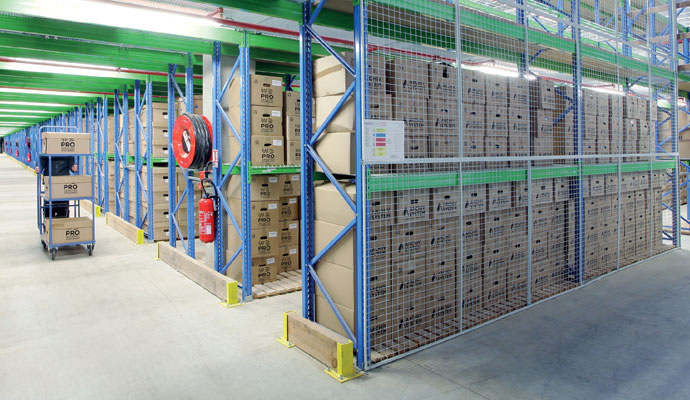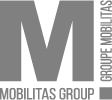
Over the last few years, the trend is towards the outsourcing of private and public companies’ physical archiving management. Often, they also choose to digitize their archives and documents.
Source of the hype?
Whilst the Mobilitas Group had anticipated this phenomenon 30 years ago by including records storage management into its activities, we’ve asked Samuel Mergui, the group’s Records Management International Manager, about this.
A French family-owned company, Mobilitas, is today third in line on the French market and a major player in the international industry of physical, numerical and heritage records storage..
Why outsource the records management of documents?
Samuel Mergui: « “the desire to rationalize costs largely explains companies’ desire to outsource their records storage, but it doesn’t explain it fully.
We must remember that, legally, there’s an obligation for public and private companies to keep certain archives. For a company, entrusting the conservation of its documents to an outside supplier is to benefit from the competence of experts who proceed with regulatory and technological monitoring. To delegate records management to a third party offers legal compliance, but also enables the optimization of the documents storage conditions, whatever the type of document. In the case of electronic records, the safety and sustainability of information is guaranteed.
For physical archives, contrary to popular thinking, sensitive documents are much safer in a dedicated records management facility than on the company premises, both in terms of their integrity (fire, flooding) and in terms of their accessibility.
Finally, a professional in records management guarantees the fast availability of the documents thanks to a performing filing and return system. At Mobilitas, we have developed a unique records management filing system, a high-performance solution of electronic strongbox, able to adapt to the specific needs of any type of company, whether they are public or private. Our clients are banks, insurers, hospitals, administrations, manufacturers…”
Increasing needs in records keeping: a worldwide phenomenon
Samuel Mergui: “Mobilitas has been offering its know-how and its services as externalized archiver since 1987 for all kinds of documents: paper, digital, magnetic tapes, patient files, etc.
Thus, over the last 20 years, Mobilitas has been anticipating and addressing the increasing records management needs of companies and organisations in France, and also in Europe, in Asia, in the Caribbean, the French Overseas Territories and, finally, in Africa, which offers great potential. We’ve put in place a dynamic strategy of extension of our services everywhere in the world to address our clients’ requirements. To that end, Mobilitas is constantly investing in expansion projects, to ensure facilities meet the regulatory standards, the purchase of buildings or the construction of new state-of-the-art and secure infrastructure, containing space dedicated to physical conservation as well as digitization workshops, consultation rooms, etc. For instance, we’ve recently expanded and developed our activities in South Africa, Kenya, Senegal, Mozambique, Ivory Coast, Rwanda, Zambia, and also in Europe, the Caribbean, the French Overseas Territories, in all the places where we’ve already been present for many years.
Over the next few years, Mobilitas intends to develop this activity in Cambodia, Myanmar, and in many other African and European countries.
What about heritage imaging
Samuel Mergui: “the digitization of heritage funds consists of the imaging of old or fragile documents, such as art, archival holdings, glass plates, postcards or historical documents. In the past, public bodies were those who mainly called on us. Today, more and more private companies want to promote their collections, their archival holdings and their history.
Heritage digitization is burgeoning as it allows one not only to protect rare and fragile works, but also to edit and duplicate works. These treasures may become accessible to the public who may then consult the cultural heritage archives in a digital library, in a secure manner.
At the cutting age of technology, we are able to digitise items at 360 degrees or in 3D. This will enable you to admire the items at all angles. Recently, we digitized the canvas of a Black Pharaoh’s sarcophagus which is at least 25 centuries old. We also created a digital library of old astronomy books (1450-1850) from the holdings of libraries in Aquitaine and in the Paris Observatory. We’ve also carried out many other beautiful projects…”
The financial advantage, data security, the possibility to gain space and time and the compliance with regulations explain that the demand and companies and organisations’ needs in archiving services are increasing. Experts in records management, an external archiver manages the archives’ entire life cycle, until their destruction. Companies can then focus on their main activity.
As for heritage digitization, it allows for the immortalization of rare holdings and works thanks to the creation of digital libraries. More and more companies, organisations, museums, foundations and institutes want to share and spread “history”, “knowledge” and “know-how”. Private collections, priceless works, unique documents become accessible and searchable wherever you are, anywhere in the world.

